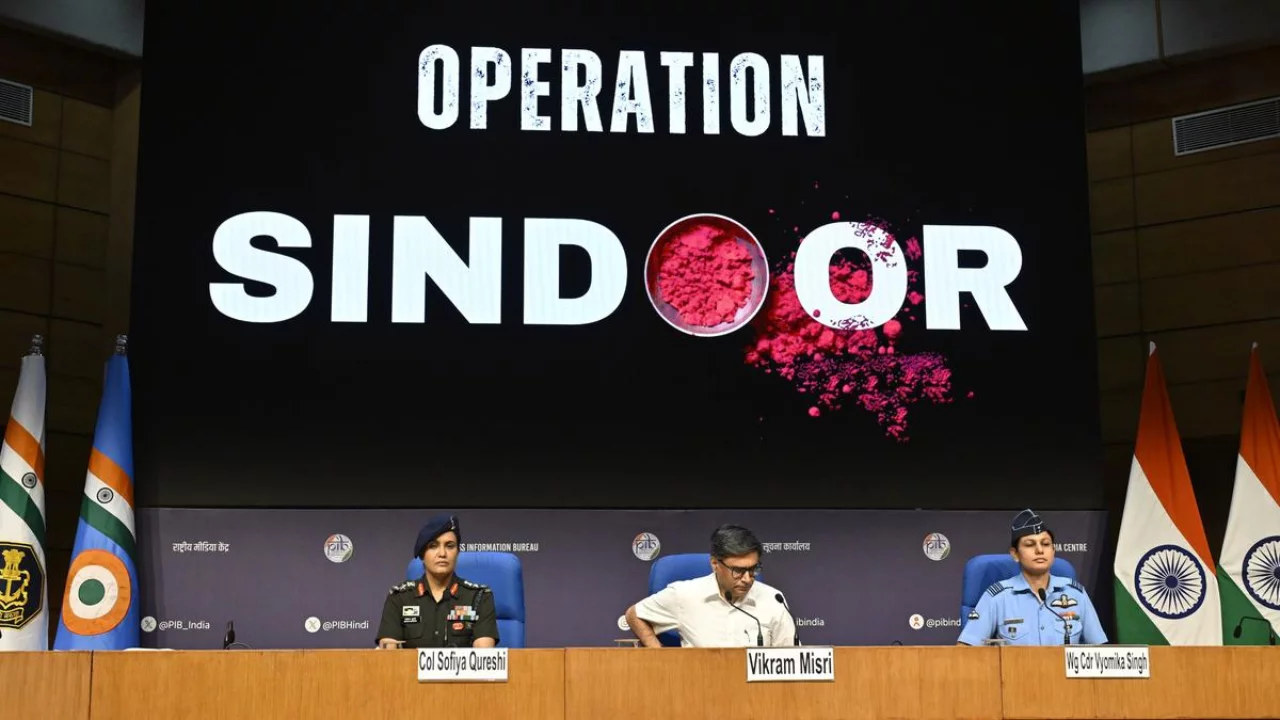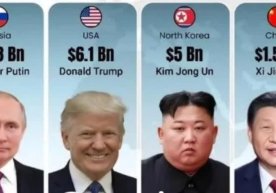
It is no secret that the Pakistani military establishment is hand in glove with Islamist terrorist groups functioning from Pakistan. This allegation has now been confirmed by the presence of the Pakistani military top brass in the funerals of designated terrorists killed under “Operation Sindoor” in Indian air strikes on May 7 on the terror network functioning from Pakistan.
The four-day war that Pakistan has fought with India has also exposed the vital dependence of the Pakistani military on China for weapons. By strengthening the Pakistani military, China is thus helping to prop up the Islamic terror network in Pakistan.
At the same time, Beijing is oppressing the Uighur Muslims of Xinjiang under the excuse of controlling terrorism. This exposes the double standards of the Chinese communists towards Islamic terrorism.
Branding the East Turkestan Islamic Movement a terrorist outfit, the Chinese authorities have thrown one million Uighur people in concentration camps and have imposed other repressive measures on the Uighur people like forcible sterilization and refusal to pursue their Islamic religious practices. The United Nations High Commissioner for Human Rights has described this treatment as “crime against humanity.”
In 2020, however, the East Turkestan Islamic Movement that demanded the establishment of an Islamic state in Xinjiang was delisted by the U.S. as a terrorist outfit and the ban on it was lifted. On the other hand, some of those killed in the Indian air attack on May 7 were designated global terrorists; commanders of some of the banned outfits. Senior military officers of Pakistan who thrive on material help from China were present in their funerals.
Among the high-value terrorists neutralized in the Indian precision strikes was Lashkar-e-Taiba (LeT) commander Mudassar Khadian Khas, also known as Abu Jindal. During his funeral, wreaths were laid on behalf of Pakistan Army Chief General Asim Munir and Punjab Chief Minister Maryam Nawaz. The ceremony was led by Hafiz Abdul Rauf, a designated global terrorist and senior LeT figure. Senior army officers, including the Commander IV Corps and GOC 11 Infantry Division of the Pakistan army, were present. LeT has been banned by both the U.S. and the U.K. governments.
The Pakistan government has announced it will rebuild a mosque at Muridke near Lahore destroyed in the Indian air attack on May 7. The mosque had served as the headquarters of Jamaat-ud-Dawah (JuD), a front of LeT. The Pakistan Markazi Muslim League, political wing of the JuD, has congratulated the Pakistani government on this announcement. Senior Pakistani army officers and police and government officials were present at the funeral of three JuD activists killed in the air attack.
Over the past decade, China has been helping the Pakistani military to modernize; the same military which is in cahoots with Islamic terrorist groups. According to figures of the Stockholm International Peace Research Institute, 63 percent of the total arms supplied by China globally between 2020 and 2024 went to Pakistan; which accounts for almost two-thirds of China’s total arms exports. Between 2020 and 2024, Pakistan sourced 81 percent of its total arms imports from China.
Till 2010, the U.S. was the major arms supplier to Pakistan. But Washington did not approve of Islamabad’s support for Islamic terrorist groups like the Afghan Taliban and the Haqqani Network and curtailed arms supplies; providing China with the opportunity to fill the gap. VT-4 main battle tanks manufactured by China and Chinese SH-15 howitzers of 155 mm calibre are today the mainstay of the ground forces of Pakistan. These howitzers were used by the Pakistan army to shell Indian villages in the recent war. The Chinese J-series fighter jets are the mainstay of the Pakistani air force. China is supplying the Pakistani navy with diesel-electric attack submarines and frigates.
Some of the arms and weapon systems supplied by China that the Pakistani military has used in its short four-day war with India are JF-17 fighter jets, the J – 10C Firebird, PL-15 missiles, Long Range Air Defence Systems of the HQ-9 Family, CH-4 Rainbow drones and Karakoram Eagle Airborne Warning And Control Systems to manage aerial battles. The JF-17 is a fourth generation fighter jet developed by China in Pakistan. The J-10C is a versatile fighter. The PL-15 is the most modern air-to-air beyond visibility range missile developed by China. Significantly, none of these could penetrate the Indian air defence. Nor could the Pakistani air defence propped up with Chinese weapon systems prevent Indian weapons like the indigenous Brahmos missiles and the imported Scalp missiles and Hammer bombs from hitting targets deep inside Pakistan.
There are other instances of China patronising Pakistani terrorists. In 2016, China blocked an Indian move in the United Nations Sanctions Committee to declare Jaish-e-Mohammed leader Masood Azhar as a declared terrorist under UN Security Council Resolution 1267 adopted in 1999. “We note with concern China’s decision to block the proposal to list Masood Azhar as a designated under the 1267 Sanctions Committee of the UN Security Council,” the Indian External Affairs Ministry stated in December 2016. The Pakistan-based Jaish-e-Mohammed which is proscribed as terrorist outfit by the United Nations has been responsible for innumerable terrorist attacks on India. The inability of the international community to list its leader Masood Azhar confirms the prevalence of double standards in the fight against terrorism. The decision by China is surprising as China has declared opposition to all forms of terrorism.
In June 2015, China blocked an Indian move in the UN against Pakistan on the decision of Islamabad to release from jail LeT commander Zaki-ur-Rehman Lakhvi who was the mastermind behind the Mumbai terror attack in 2008. Lakhvi is understood to be still at large and was seen participating in a session on fitness in 2024.
It is clear who the Indian External Affairs Ministry spokesman was referring to when he mentioned about the prevalence of double standards in the fight against terrorism. While China prods the Pakistani government to crack down on Uighur militants and their bases in North Waziristan, it appeases Islamabad’s support of anti-India terrorist groups. The Chinese duplicity in Islamic terrorism now stands exposed.
By Vaishali Basu Sharma,
analyst on geopolitical and macroeconomic issues
Read “Zamin” on Telegram! analyst on geopolitical and macroeconomic issues
Ctrl
Enter
Found a mistake?
Select the phrase and press Ctrl+Enter Related news
Information
Users of Меҳмон are not allowed to comment this publication.
Users of Меҳмон are not allowed to comment this publication.














